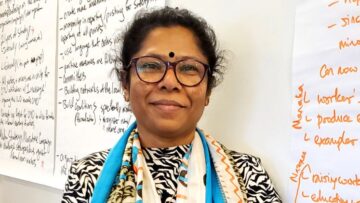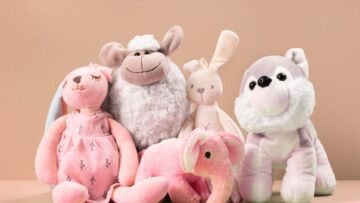Evolving on niche strengths has become critical for growth in a market which is becoming not only fiercely competitive, but is also constantly demanding freshness. With an integrated setup from circular knitting to retail, Bhandari Hosiery Exports has been consistently upgrading its three critical units: knitting, processing and garmenting. From basic fabrics the company is now concentrating on specialized fabrics, for which it is focusing on processing. It has invested Rs. 30 crore (US $ 5 million) in the past one year, and for the next two years it will continue to invest more in processing which it sees as a very weak area in the textile chain, but a hugely potential growth platform for companies willing to take the plunge. “Right now our focus is on high-value processed fabrics, for which we are getting enquiries from Bangladesh and Sri Lanka, and are now also targeting Turkey,” says Nitin Bhandari, Director.
Being sustainable is a major thrust area for the company, and is integral to their plans for taking the business forward to the next level. The eco-conscious company has bought in 9 machines for their finishing lines that have a liquor ratio of 1:4 (the industry average is 1:10). No doubt, the investments are big. If a normal machine costs Rs. 15-20 lakh (US $ 33,333), a single machine which guarantees eco-friendly processing will cost Rs. 75 lakh (US $ 125,000), but the ROI is just one-and-a-half years, provided the plant runs properly,” avers Nitin.

Totally committed to being sustainable, not a single drop of water at their factory goes into the sewage, and there is zero discharge in the sense that the water is treated and made fit for fish survival, and for watering plantations in the premises. “India suffers a lot because we do not have the proper processing, and people who did go for processing are not considering the environment angle, but we all saw how Tirupur suffered for a whole year and was practically closed down. Strengthening one’s processing and looking after the environment has to go hand in hand,” argues Nitin. The biggest challenge that the company has conquered is that they have reduced water consumption in processing. “The further we go, the more these things will matter. Earlier, there were trade barriers like quota system, then came audits and non tariff barriers, mostly in relation to social compliances, but the next trade barrier is going to be the environment,” he adds.
In garmenting, the company has shifted focus from mid-level priced garments to high-value garments. It has many garment-dyed programmes, which are all in knits, with high value additions, and is doing 8,000 pieces per day with an average FOB of around 7 dollars for both seasons, which it wants to take higher. “This is where our thrust for product development would come in handy. If you don’t have the volume you have to have the value, else it will be very difficult to survive. I don’t think India can survive on basics or middle-level garments,” says Nitin, who also informs that they are speculating shifting some of the garmenting base towards South India, where there is more professionalism. Ludhiana is also facing lack of trained manpower, especially in the middle-level management, which can hinder growth of the company.
The company is working to be more competitive and Nitin informs that their lead time will now be cut down by a substantial 3-4 weeks, as all the processing will be done in-house. “Also, the buying model has changed. Earlier, buyers used to buy at least 4-5 months in advance, but since Zara has come in, they have completely turned around; the decision is quicker, and they want the delivery in 60 days. Our factories are geared to meet this kind of pressure, which I think is best for everyone in the chain. If the turnarounds for an order are 4 months and now you are doing the same in 2 months, imagine how much turnover you are creating… which is good for the industry,” reasons Nitin.
The company has ventured into domestic retail with the opening of 10 retail stores called Apparel & More, all in Punjab. These stores are catering only to women, and offering a complete range of products, some manufactured in-house, while others outsourced. Plans are to add at least 2 stores every year, provided the retail venture proves to be profitable. They are also considering partnering with some e-commerce companies like mantra.com, and will test this retail channel before launching their own online retail platform.
In the meanwhile, Bhandari Hosiery Exports has also started selling to domestic customers – only high-end brands, which are more quality-driven. “We are working with Reliance, and the whole world says that Reliance prices are rock bottom. But we don’t cater to that segment; we cater only to the specialized fabric segment. In fact, good domestic brands that have really scaled up and their business is going to be a force to reckon with in a year or two,” avers Nitin. These proactive initiatives have propelled the company to a turnover of Rs. 100 crore (US $ 16.66 million), and now the target is Rs. 150 crore (US $ 25 million) in 2015. “If you don’t innovate and invest regularly you are not going to make profits,” concludes Nitin.







